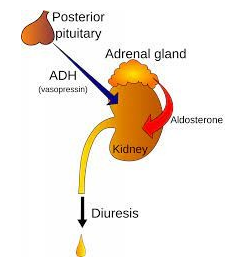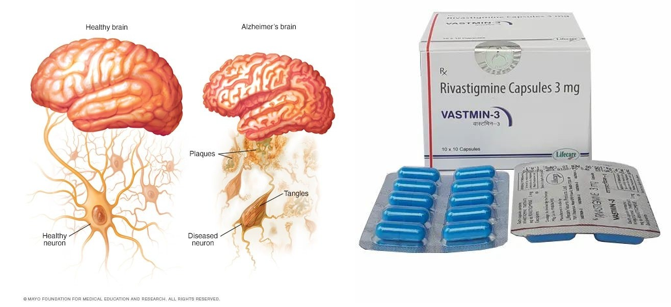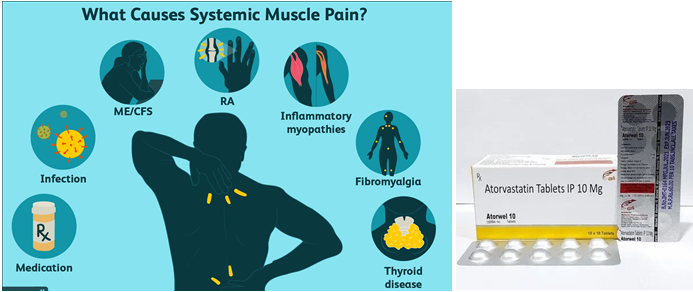When caring for a client with diabetes insipidus who is receiving antidiuretic hormone intranasally, which serum lab test is most important for the nurse to monitor?
Platelets
Glucose
Osmolality
Calcium
The Correct Answer is C
Diabetes insipidus is a condition in which the kidneys are unable to conserve water, leading to excessive thirst and urination. It is treated with antidiuretic hormone (ADH), which helps the kidneys retain water and reduce urine output. When caring for a client with diabetes insipidus who is receiving ADH intranasally, it is important for the nurse to monitor the client’s serum osmolality.
Osmolality is a measure of the concentration of particles in a solution and can provide information about the client’s hydration status.
Monitoring serum osmolality can help determine if the ADH therapy is effective in managing the client’s diabetes insipidus.

Nursing Test Bank
Naxlex Comprehensive Predictor Exams
Related Questions
Correct Answer is A
Explanation
The nurse should explain to the client's daughter that Rivastigmine is most effective when used early during Alzheimer's disease. Delaying the use of the medication until the symptoms are no longer manageable may result in the drug being less effective.
The nurse should emphasize the importance of following the healthcare provider's instructions for administering the medication to maximize its therapeutic effect. It is important to educate the client's daughter about the progressive nature of Alzheimer's disease and the need for ongoing monitoring and care.

Correct Answer is D
Explanation
Atorvastatin is a medication used to lower cholesterol levels in the blood. One of its side effects is muscle damage, which can result in an increase in serum creatine phosphokinase (CK) levels. Creatine phosphokinase is an enzyme found in muscles, and when muscles are damaged, CK is released into the bloodstream. Therefore, an increased serum CK level indicates muscle damage, and the nurse should assess the client for muscle tenderness or weakness, which are symptoms of this side effect. Nausea and vomiting, excessive bruising, and peripheral edema are not typically associated with atorvastatin use.

Whether you are a student looking to ace your exams or a practicing nurse seeking to enhance your expertise , our nursing education contents will empower you with the confidence and competence to make a difference in the lives of patients and become a respected leader in the healthcare field.
Visit Naxlex, invest in your future and unlock endless possibilities with our unparalleled nursing education contents today
Report Wrong Answer on the Current Question
Do you disagree with the answer? If yes, what is your expected answer? Explain.
Kindly be descriptive with the issue you are facing.
